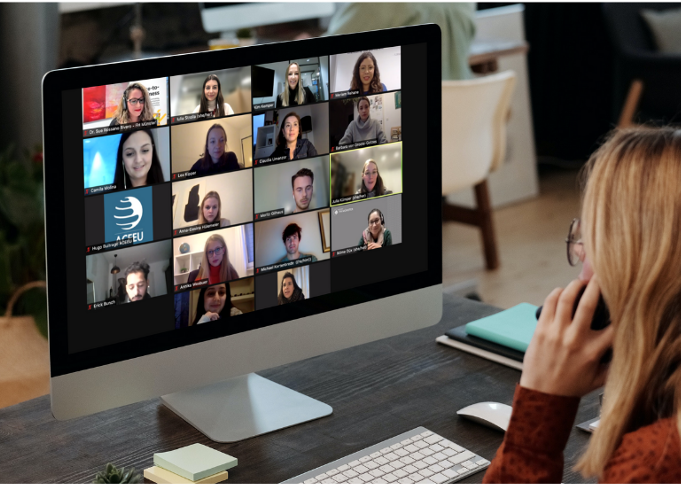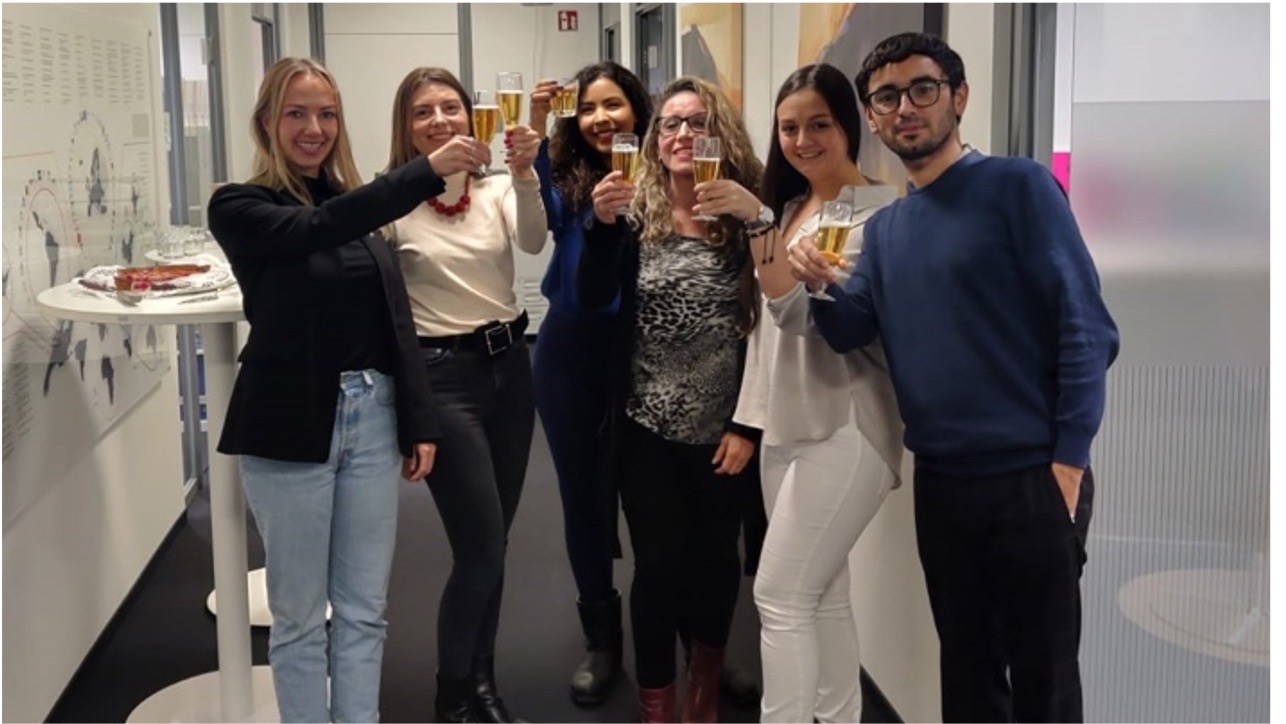30 November 2021 | online
On the 30th of November, a diverse group of 20 participants met for three hours to discuss how o better integrate female graduates into the regional entrepreneurial ecosystem in the Münsterland' region. This local think tank is part of the European project Women Entrepreneurs in Regional Inclusive Entrepreneurial Ecosystems (WeRin), which is running five local think tanks in Croatia, Germany, Ireland, the Netherlands and Turkey.
The local Think Tank of Münsterland was meant to be an on-site event. Because of the intensification of the COVID-19 pandemic in Germany, the project team, consisting of WESt, FH Münster and ACCEU, had to make a quick decision and moved the event to an online format.

The workshop began with a warm welcome from Kim Kemper (WESt mbH), who moderated the three-hour event. Then, the Managing Director of the Science to Business Marketing department of the FH Münster, Prof. Dr. Thorsten Kliewe, gave an introductory keynote speech on why fostering female entrepreneurship is crucial for the region. Afterwards, Junior Professor Dr. Sue Rossano-Rivero, the director of the European project, kicked off with a presentation on the research results. So far, the project has conducted over 300 interviews in the six countries participating in the project.
After the participants had gained an overview of the WeRin project and its goals, the group representing women entrepreneurs, educators, stakeholders, project managers and students from the region with different national backgrounds introduced themselves and explained why the topic was a key regional issue from their point of view.
With a significant representation of Latin America among the participants, we were encouraged to start with a short online dance break to break the ice before starting with the interactive component led by Iulia Stroila.
The first exercise was to imagine and describe an ideal world where women feel welcomed in the entrepreneurial scene-a world where gender and other structural perspectives are taken into account. The group was divided into smaller homogeneous groups. Participants met in breakout rooms to develop their thoughts on the ideal world for three pre-defined levels: entrepreneurship education, entrepreneurship support programs, and entrepreneurship ecosystem. As a result, participants presented ideas such as incubators offering a Kita with childcare for entrepreneurial mothers and mechanisms to receive maternity protection, as employed women do. The results are the following:
Results at the ecosystem level:
- Intersectional feminism is being practiced
- Barriers must be overcome, especially language barriers and existing prejudices so that the motivation to become active as an entrepreneur continues to rise
- Early interdisciplinary cooperation with other fields
- Entrepreneurship is perceived by society as an actual career option
- Women have reached leadership positions, especially in positions where financing is granted
- Gentle leadership traits are valued/feminine characteristics are not stereotyped
- In a perfect world, there is no need for such initiatives that tackle gender
Results at the entrepreneurship education level:
- Student crowdfunding is part of the curriculum
- Every lecture starts with workshops on yet unknown biases
- Incorporate entrepreneurial education into the curriculum structure
- Start early in school with appropriate teaching units
- Role models are parallel mentors
- No judging, only supporting ideas
- Various opportunities the university offers students who are interested in entrepreneurship
- Students who have innovative ideas can easily benefit from entrepreneurship education
Results at the support level:
- The inclusion of women entrepreneurs as role models in lectures and workshops is becoming "mainstream"
- Plenty of women networks that support each other and networks with a high diversity
- Visibility of immigrant entrepreneurs in Münster
- Mentorship opportunities: bringing senior professionals together with junior professionals
- The Silicon Valley myth is busted: media suggest strong female founders
- Transparent pitching competitions

The project team identified eleven significant challenges within the three levels of entrepreneurship education, entrepreneurship ecosystem, and support programs through the research presented earlier. All participants voted on which challenges they identify as the most important and present for them or within their field of work. The top six challenges were then selected for the final exercise. This time, heterogeneous groups met in breakout sessions to develop possible solutions to the challenges and discuss them. Some teams came back to the plenary with innovative ideas on how to solve the previously established challenges. Ideas like changing the evaluation criteria for the allocating entrepreneurship scholarships and venture capital. And, also simple solutions like setting up a Slack channel to connect all members of the entrepreneurial ecosystem in Münster.
Undoubtedly, the activities during the Think Tank and the exchange of ideas with all participants have contributed to a better understanding of the drivers and barriers for female graduate entrepreneurs in the regional ecosystem of Münsterland.
All in all, the event was a success. In the end, the project leader Sue Rossano-Rivero asserted that the dream of the Münsterland region is to become a top destination in the world for female entrepreneurs. This local think tank was the first step in the right direction to make this dream come true.


